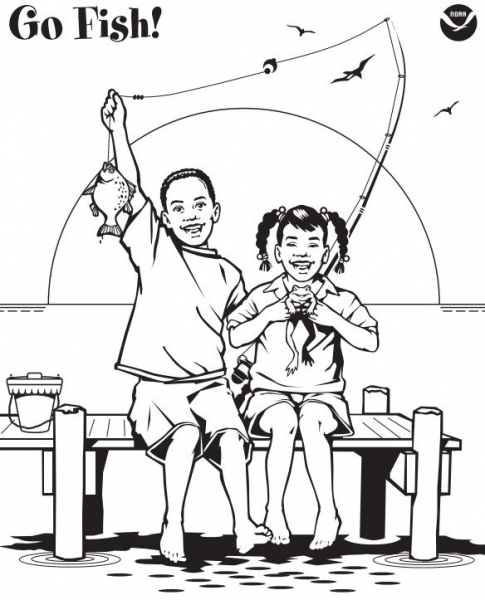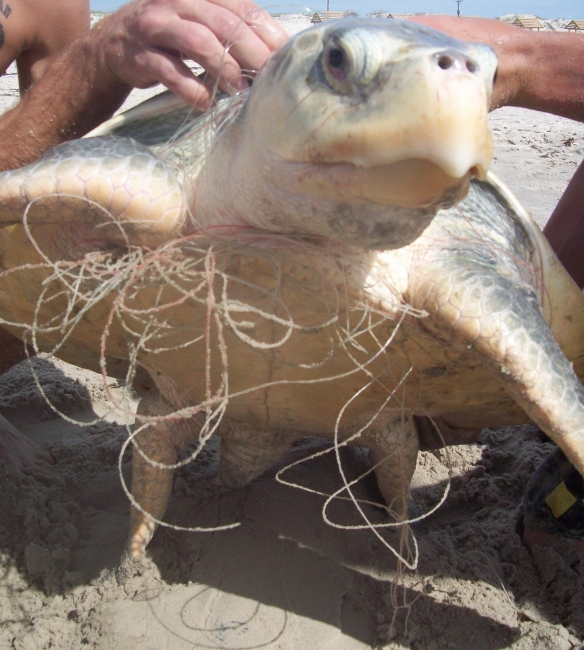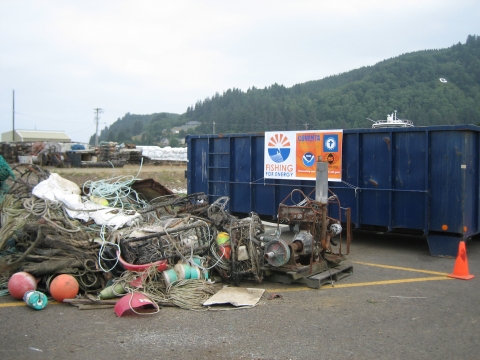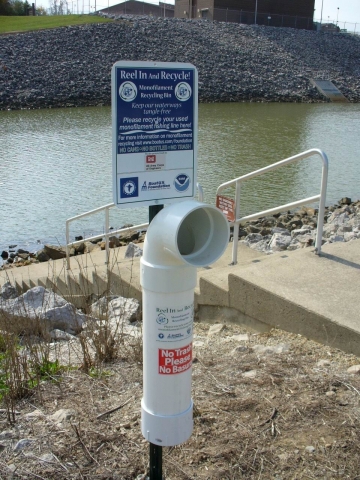Believe it or not, but it’s already August and summer seems to be flying by! Hopefully, you’ve had a chance to enjoy the warm weather by spending some time outdoors with your family and friends. Perhaps you’re planning on spending these last dog days partaking in one of summer’s most popular activities—fishing.

Fishing is a fun activity to enjoy with family, friends, or for some peaceful time alone. Unfortunately, fishing gear and fishing-related items are commonly found as marine debris in our environment, but thankfully, there are ways to enjoy this tradition without contributing to marine debris.
Be aware of your surroundings. Don’t cast your line in the way of other boat traffic or into areas where you’re likely to get snagged. If you do get snagged, do your best to get to your line and work to untangle it. If you don’t have a choice but to cut it, try to get as close to the issue as possible.
Use your gear properly. You might think fishing seems simple, but make sure that you know how to use your equipment. Using it improperly can result in tangled line or lost gear.
Keep track of your gear. Whether you’re casting a line or setting a trap or pot, it’s important to keep track of the gear you have out in the water so it doesn’t get lost. Check out these videos, created through a NOAA Marine Debris Program-funded project with the Northwest Straits Foundation, which give some useful tips on how to properly use and keep track of crab pots.
Dispose of line and gear properly. When improperly disposed of, fishing line and gear can post a serious threat to wildlife, which can get tangled up or caught in derelict equipment. To make sure that it doesn’t end up in our environment, dispose of your used gear properly. Find a monofilament recycling container for your fishing line, and make sure to recycle your old pots and nets if you can. The Fishing for Energy partnership offers gear recycling bins around the country in which gear is collected and then recycled and converted to usable energy.
Keep track and dispose of your other items, too. Fishing usually includes a variety of other items like snacks, drinks, sunglasses, hats, tackle boxes, etc. Make sure you keep track of these items as well and dispose of them properly when you’re done with them.
We can all enjoy the rest of our summer while still being conscious about our contribution to marine debris. Let’s all do our part to make a difference. Happy fishing!




Thanks for sharing this information. I really like your blog post very much. You have really shared an informative and interesting blog post with people a great gift for fishing lover .